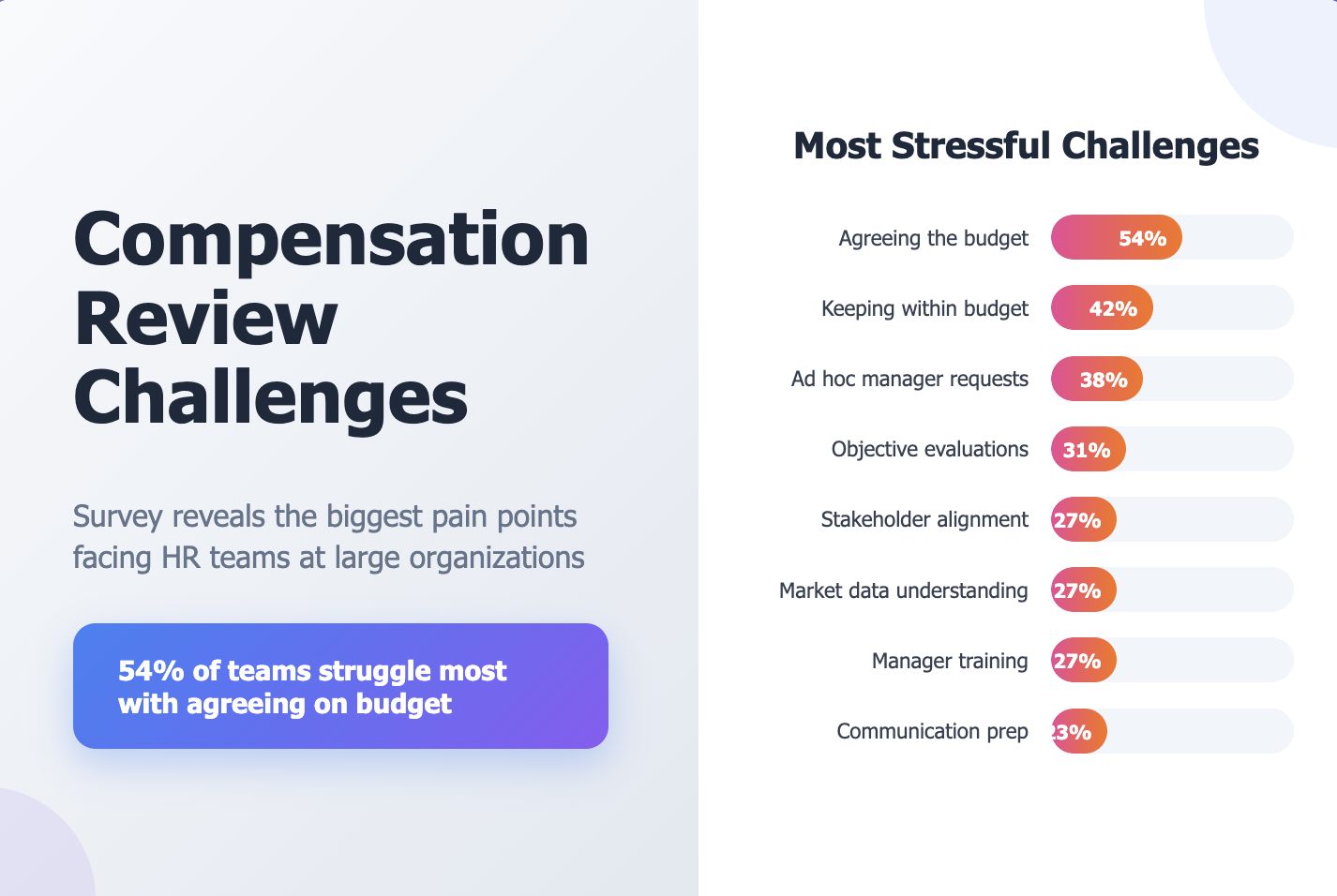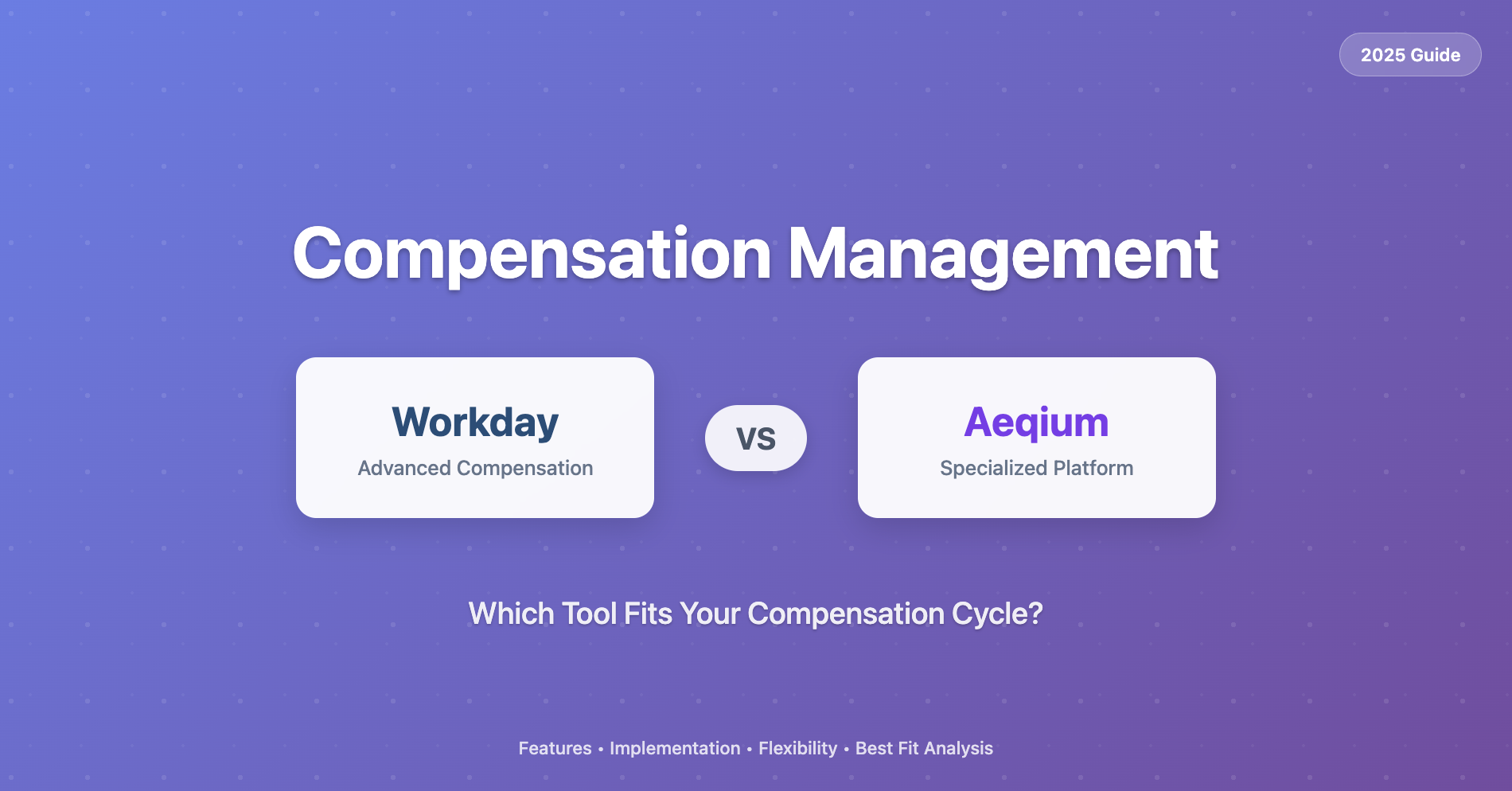When to Make an Exception to the Compensation Rules and How to Build a Business Case

Balancing Internal Equity with Market Competitiveness
It’s natural to be cautious when making compensation exceptions for individual employees. HR teams work hard to maintain pay equity while staying competitive in the market, and exceptions can feel like a slippery slope.
However, in some cases, strategic compensation exceptions are necessary to attract and retain top talent. The key is knowing when to say yes and how to justify and manage exceptions systematically.
When to Consider Compensation Exceptions
Common scenarios where an exception may be warranted include:
- A high-demand candidate seeking a salary above the planned range.
- A high performer who is not yet ready for a promotion but could command a higher salary elsewhere.
- Key roles evolving due to new technical or leadership requirements.
- A critical position that has remained unfilled for an extended period.
Indicators That a Compensation Exception May Be Necessary:
✅ Multiple employees in the same team leaving for higher-paying roles✅ Hiring for a role that has become more technical and competitive✅ Accelerating business growth requires a more senior hire
“In cases where roles remain unfilled for months due to evolving skills, changing market pricing, or shifts in business strategy, creating a comp exception could be warranted.” — Alex Michalowski, Head of Total Rewards at Zscaler
Leveraging Data to Justify Compensation Exceptions
Using data and analytics ensures fair, objective compensation exceptions. When considering an exception, analyze:
- How long the role has remained open
- Number of offer rejections and reasons for declines
- Turnover rate among high performers
- Market salary benchmarks vs. internal pay structure
- Employee’s performance metrics and contributions
Tracking and documenting the reasons behind exceptions helps ensure consistency and prevents arbitrary salary adjustments.
“Leveraging data enables organizations to justify comp exceptions based on objective criteria, ensuring fairness and market alignment.” — Alex Michalowski
💡 Pro Tip: When conducting a compensation review, compare the employee’s salary against equity and salary bands to determine whether a salary exception or band adjustment is more appropriate.
Building a Business Case for a Compensation Exception
When a compensation exception is necessary, HR leaders must partner with managers to present a clear, data-driven business case. The approval process typically involves a senior leader or compensation committee.
A Strong Business Case Should Include:
📌 A well-documented case explaining the business need📌 Risks of not making the exception (e.g., talent loss, business disruption)📌 Projected return on investment (ROI) of hiring or retaining the employee
Using Stretch Assignments to Strengthen the Business Case
Before making an exception, consider assigning a “stretch project” to evaluate the employee’s potential for greater responsibility.
Examples:
- Assigning a leadership role to assess readiness for promotion
- Involving the employee in a cross-functional or global project
- Offering a temporary relocation to test adaptability
“When dealing with a top-performing employee, securing that talent is critical. Tasking them with a stretch assignment can help justify a comp increase or spot bonus.” — Alex Michalowski
Creating a Systematic Approach to Compensation Exceptions
To ensure fairness and transparency, organizations should:✅ Regularly review past compensation exceptions to ensure consistency.✅ Analyze their impact on pay equity and overall budget.✅ Train managers and leaders on fair decision-making processes.✅ Establish clear guidelines on when exceptions are allowed, who approves them, and how they are communicated.
“The more openly you communicate about pay practices, the deeper employees’ trust and commitment to the company becomes.” — Alex Michalowski
Turning Compensation Exceptions into a Strategic Advantage
By taking a data-driven, structured approach to compensation exceptions, companies can:
- Attract and retain top talent in competitive markets
- Balance internal equity with external competitiveness
- Ensure transparency and fairness in pay decisions
📊 Want to improve your organization’s total compensation analysis?
Explore Aeqium’s Total Compensation Insights & Analysis tools today! 🚀




